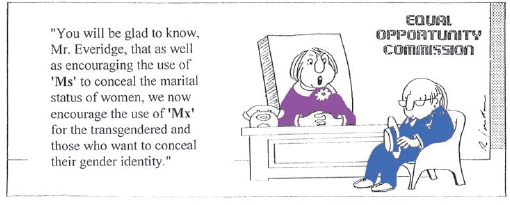CHOICE NEEDED FOR LONG DAY CARE OF INFANTS
by Babette Francis
Dr. Sue Packer, Canberra’s 2013 Citizen of the Year, who is a respected pediatrician and and vice-president of the leading advocacy body for prevention of child abuse and neglect, says leaving babies in long-day care can be a form of child abuse. She also believes lack of communication between parents and their children when young could be a contributing factor to Australia's alarming rate of depression and suicide in youths: "There is a looming risk for children brought up in an untested environment (long-day care)," she said. "They are a social experiment now. We will see how much alternative care they than cope with without compromising development."
Dr Packer was a contributor to pamphlets on display at Nambour General Hospital in October 2014 titled ‘Alternatives to Smacking Children.’ While Dr Packer does not support smacking a child, even a controlled smack, she said what was more damaging was the lack of attention children got: "More than anything what is changing in Australia is the connected time parents spend with their children," she said. "It is plummeting. Which is more damaging, the occasional smack or level of attention? I would say the level of attention."
Dr Packer questioned why parents were having children when they did not want them and enjoy them. Her sharpest criticism was levelled at parents who put their children in long-day care when they were less than a year old. She said there was amazing research on the development of babies’ brains from six weeks of age and referred to the work of Professor Allan Shore, a leading neuroscientist at the University of California, who has done research into how parent- child interaction plays a key role in shaping the right side of infants' brains.
Dr Packer said a lack of parent-child interaction was more harmful than the occasional slap on the wrist with a hand. "There is enormous pressure on women to work in Australia. Finland is doing better. They have three years of paidparental leave and virtually no babies in alternate care for the first year of life. Early in the second year, children enjoy being with others.But it should be for short periods, they should predominantly be with their mother."
Dr Packer said some children were different and enjoyed being with others. But for others, it could be traumatic. "It is called child abuse if it is traumatic and it can be very traumatic. The days we are living in are difficult. We are bringing our children up in a different world."Every child is different, but in general every effort should be made by parents to keep their baby home in the first year."
Dr. Shore has been warning for several years of the possible harm to under three-year-old children. In October 2006 he co-signed a letter to The Daily Telegraph authored by Sir Richard Bowlby, the president of the Centre for Child Mental Health in London, warning of the effects of putting very young children into long-day care nurseries. The group of 110 signatories to the letter included author and psychologist Steve Biddulph. These experts queried whether children under three should be cared for by anyone other than trusted and familiar figures in their lives.
“Research suggests that its absence can lead to behavioural difficulties in a significant proportion of young children.” He laid out all available evidence about the best way to care for children, particularly in the crucial period between birth and the age of 30 months and concluded that in a society which encourages both parents to work outside the home while their children are under three, it is 'attachment-focused' child-care arrangements that have a crucial role to play in facilitating healthy emotional development."
In an interview with The Daily Telegraph, Sir Richard said: "I am not saying that all group day-care is bad any more than I am saying that all mothers are perfect. But it is far more difficult for a day-care nursery to provide an environment in which a child will develop normal emotions than it is for a mother, or in her absence, a father, grandparent or child-minder. Rather than funding day-care nurseries, the Government should make it easier for parents to use their child-care allowances to pay a grandmother or other relative to look after their children, or to use it themselves as 'pay' to look after the child themselves."
Steve Biddulph who has written a series of respected books on parenthood, said: "The psychological neurological evidence is clear that this [long day care] is not adequate care for proper brain development in the under-two child. The proper development of the infant cortex depends on one-toone loving care, yet we have never had an economy or a government that puts less value on love. Supporting young mothers and fathers to have more time [with their infants] is good economics, in preventing socially dysfunctional young people from filling our schools and streets.
ACTION: Write to Treasurer Joe Hockey, Parliament
House, Canberra, ACT 2600, asking for a universal baby
payment to all mothers to replace PPL and child care allowances.
This would give parents a choice about caring for
their infants and would reduce the huge costs of administering
the current system. It would also facilitate the breast
feeding of infants for more than a cursory few weeks.![]()

